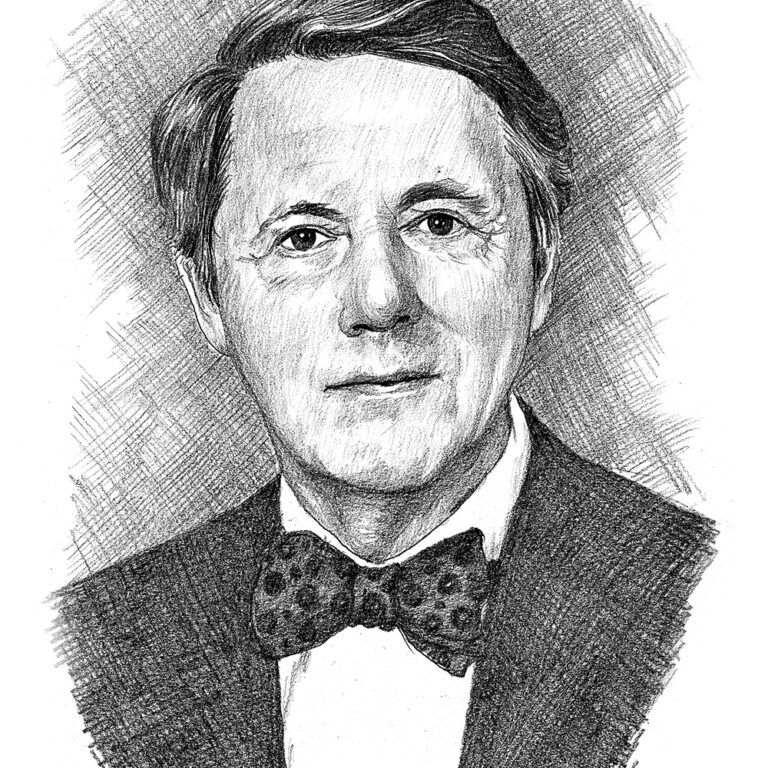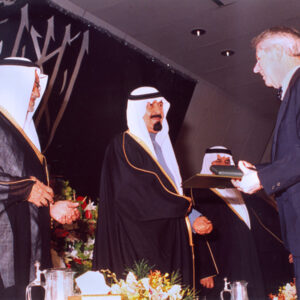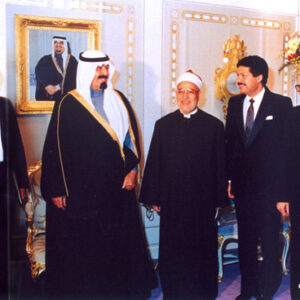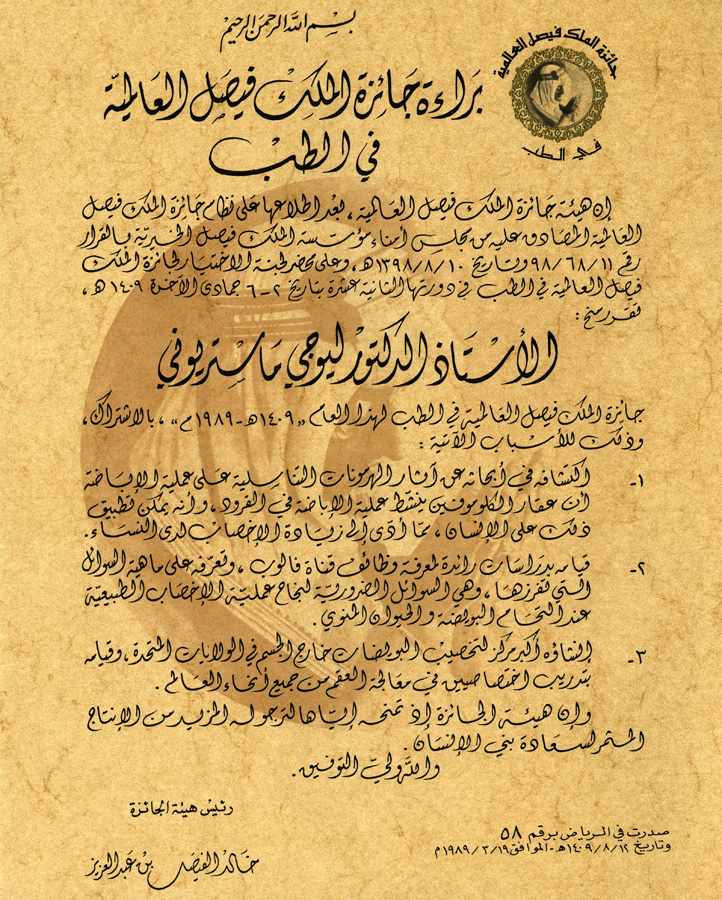

Professor Luigi Mastroianni Jr.
King Faisal Prize in Medicine 1989 Laureate
Topic: "Infertility "
For both men and women, infertility is, at the very least, associated with a sense of frustration, disappointment, and lack of fulfillment

Luigi Mastroianni, Jr. graduated from Yale University in 1946 with a bachelor’s degree in zoology and obtained his MD from Boston University School of Medicine in 1950. He completed his internship and residency in Obstetrics and Gynecology at the Metropolitan Hospital in New York and then proceeded to a fellowship in Fertility and Endocrinology at Harvard Medical School and the Free Hospital for Women in Boston. He returned to Yale as an Assistant Professor. In 1961, he became the Chief of Obstetrics and Gynecology at Harbor General Hospital and a Professor at the University of California, Los Angeles, where he continued to focus on the basic physiology of the oviduct. In 1965, he was appointed the William Goodell Professor and Chairman of Obstetrics and Gynecology at the University of Pennsylvania School of Medicine, where he established a Division of Reproductive Biology and a Division of Human Reproduction. Under his leadership, these Divisions made substantial contributions to the understanding of the female reproductive tract and the biology of male and female gametes, as well as to the treatment of infertility in both partners. The Reproductive Biology Division also provided research training for investigators from the USA and 25 other countries.
Professor Mastroianni dedicated his life to studying the causes of and solutions to human infertility problems. He studied the effects of reproductive hormones on ovulation and showed that clomiphene-induced ovulation in non-human primates could be used to increase the fertilization rate in women. His distinguished work on the physiology of the fallopian tube and the biochemistry of tubal fluid contributed significantly to the basic understanding of the requirements for successful fertilization, which was a major factor in developing successful human in vitro fertilization techniques. His groundbreaking animal studies in the 1970s paved the way for IVF. In 1983, he performed the first successful human in vitro fertilization in the Philadelphia region.
Mastroianni published numerous papers in international journals. His achievements in human reproduction research were widely recognized. He received several scientific prizes including the Ortho Medal in 1966, Barren Medal in 1977, and the Research Special Award in 1981. He was a chairman of the Committee on Contraceptive Development of the National Academy of Science and Institute of Medicine, and an honorary member of major international fertility societies. He was also an invited lecturer at many universities and scientific centers. Furthermore, he served as Editor-in-Chief of Fertility and Sterility and served on the editorial board of the International Journal of Fertility.
This biography was written in the year the prize was awarded.
- He held several positions including:
- Chair of the National Academy of Sciences Committee on Contraceptive Development between 1988-1990.
- President of the American Society for Reproductive Medicine in 1992.
- Senior member of the National Academy of Sciences and Institute of Medicine in 1993.
- Professor Emeritus at the University of Pennsylvania in 2006.
- He received many awards and honors including:
- Public Recognition Award of the Association of Professors of Gynecology and Obstetrics in 1990.
- Distinguished Service Award of the Society for the Study of Reproduction in 1992.
- Rector’s medal of University of Chile in 1993.
- Axel Munthe Award in 1996.
- Service Award of the College of Physicians of Philadelphia in 1998.
- Society for Gynecologic Investigation’s Distinguished Scientist Award in 2004.
- Career Achievement Award of the Association of Professors of Obstetrics and Gynecology.
- Professor Luigi Mastroianni Jr. passed away in Haverford on 25/11/2008.



